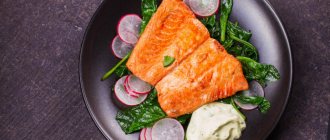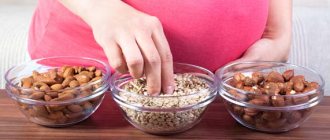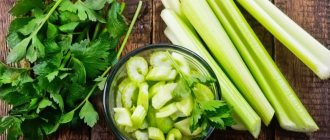General information
In order for the unborn baby to develop correctly, and for the mother to feel healthy and full of strength, proper nutrition during pregnancy . A rational and healthy diet will help a woman not only feel good, but also quickly restore her slimness after the baby is born. That is why every expectant mother, having learned that she is pregnant, must take into account all the recommendations and organize a balanced diet throughout all three trimesters. How to do this if a pregnant woman is worried about toxicosis , what exactly should be eaten during different periods of pregnancy will be discussed in this article. It describes all the nutritional features of pregnant women, and also describes the diet of the expectant mother by month and trimester.
Diet for pregnant women - menu for every day and trimesters
It is especially important for pregnant women to receive adequate nutrition. When carrying a fetus, the consumption of valuable vitamins and microelements increases, and it is not easy to replenish their reserves. We provide special dietary recommendations for pregnant women with proven effectiveness.
The truth in the legs: tights with patterns that visually slim
Nutrition during pregnancy must solve a large number of problems. Firstly, it is important to provide your body and the developing body of the child with all the necessary substances. Secondly, minimize the symptoms of toxicosis, reduce the load on the liver and stomach. And thirdly, to avoid excessive weight gain in the expectant mother.
First weeks
It is important to control nutrition in the early stages, since during this period several very important processes occur in the body of the expectant mother. First of all, we are talking about preparation for conception, then – directly about conception, after which very active growth of embryonic cells begins.
If a woman approaches pregnancy planning intelligently, then she should make certain changes in her diet even before conception. During the planning period, it is important to have a menu that is as healthy as possible. First of all, you should stop consuming processed foods, snacks, fast food, and not drink alcohol or sweet soda. In general, during this period you just need to try to introduce into your diet as much healthy food as possible, enriched with vitamins , fiber, and minerals. Another important tip is to eat as many foods rich in folic acid .
This vitamin is very important for the body of the expectant mother, as it effectively prevents the development of a number of serious pathologies of the fetus - neural tube defects, anencephaly, hydrocephalus , malnutrition, etc. After all, it is in the first month that the active formation of all the systems and organs of the child occurs. Therefore, before conception, as well as in the first months of pregnancy, you should eat as much green salad and other leafy vegetables, legumes, grains, fish, nuts, avocados, and other vegetables and fruits as possible. Products with folic acid should be consumed every day and after conception. During this period, many women are prescribed additional medications with folic acid.
Diet for pregnant women - 2nd trimester
In the second trimester of pregnancy, pay attention to vitamin D and calcium (they are absorbed only in combination). Include dairy products, spinach, eggs, sea fish, cod liver, and butter in your diet. It is important to reduce the amount of salt to avoid swelling. Get into the habit of regular walks. Use potentially allergenic foods with caution: citrus fruits, red berries, nuts. In the second trimester, the load on a pregnant woman's liver increases, so avoid fatty and fried foods.
Nutrition for pregnant women in the first trimester
Thus, the diet during pregnancy, the 1st trimester of which is the most critical period, is important primarily in relation to the developing embryo. Already in the first weeks it is necessary to adhere to dietary advice. However, it very often happens that a woman finds out about her pregnancy immediately, but at 3 or even 4 weeks. But in any case, immediately after confirming the good news, you need to reconsider your eating habits.
The diet in the first trimester involves a maximum of healthy foods and dishes. The diet should be as rich in vitamins as possible. However, many women already begin to eat, as they say, “for two” at about 5 weeks. This approach is wrong. After all, the embryo does not need calories, but important minerals and vitamins.
A proper diet for pregnant women involves minimizing foods that are too high in calories. It is not recommended to eat baked goods and confectionery products, canned foods and semi-finished products. The expectant mother should not eat sausages, sausages and crab sticks, which may contain a variety of harmful additives. They can lead to allergic reactions.
As early as 6 or 7 weeks pregnant, many women realize that their taste preferences are beginning to change. During this period, some women themselves refuse harmful foods such as fried or smoked foods, sometimes feeling disgusted by such food. But even if you sometimes crave fried food, it is better to replace such food with healthier stewed or baked dishes.
Very often, nutrition at 8 weeks or a little later (at 9 weeks, 10 weeks) is a problem, since during this period many expectant mothers begin to be bothered by attacks of toxicosis . During this period, it is important to consider some points to alleviate the condition:
- You need to eat in small portions, but often - up to 7 times a day.
- Food should not be hot.
- You need to eat healthy foods, but choose only those that give you pleasure.
However, if the woman is not bothered by early toxicosis, at about 11 weeks many expectant mothers begin to feel an increase in appetite and increase portions, believing that the child “demands” to eat more. During this period, you need to especially carefully monitor your weight, because women often gain extra pounds as early as 12 weeks, continuing to “sort out” their weight further. In this case, you need to adjust the menu, minimizing “empty” carbohydrates and fats in the diet. But protein nutrition, on the contrary, is very important. During this time, the developing baby needs amino acids found in animal protein. Therefore, meat and fish must be present on the menu every day.
A pregnant woman's diet often consists of foods that she previously ate in small quantities. For example, many people in the first months are drawn to sour foods, as a result of which a woman often eats a large amount of such foods. But, despite the fact that pickled vegetables are healthy, you should remember that they can provoke heartburn . In addition, sour foods stimulate the appetite . Therefore, you should limit yourself to 1-2 cucumbers or no more than 200 g of sauerkraut at one time.
Vegetables and fruits are foods that a woman should have as much as possible in her diet. However, you should also choose them taking into account your taste preferences. If a product is very useful, but a woman feels sick at the very sight of it, then it is better to refuse such food. Too much is also not welcome. For example, you should not drink liters of vegetable and fruit juices, as this can lead to allergies in a woman and have a bad effect on the baby.
It is recommended to include cottage cheese and cheese in your daily diet to prevent calcium deficiency. Sometimes pregnant women do not accept whole milk, but they eat fermented milk products with pleasure. You need to choose the product you like.
As for drinks, it is recommended to completely avoid coffee in the first trimester. Of course, you also need to forget about alcohol. Alcohol is especially dangerous in the first trimester. But you should drink a lot of fluids. Ideally, it should be clean water, compote or fruit drink. You can drink tea, but only weakly and infrequently. But you need to be careful with herbal teas: some herbs can provoke uterine contractions.
Thus, in the first trimester, the following products should be included in the diet:
- sea fish;
- green salads with vegetable oil;
- rosehip decoction;
- grains, legumes;
- fruits and vegetables;
- nuts;
- lean meat;
- dried fruits;
- dairy products with medium fat content;
- wholemeal bread.
Products for pregnant women. How to make the right choice?
Of course, you can get the proteins, fats, carbohydrates and vitamins you need from a variety of foods. However, during pregnancy, the range of products and methods of preparing them become of considerable importance. Please note that:
- sources of animal protein during pregnancy should be varied - alternate meat, dairy products (milk, cottage cheese, cheese, etc.), fish in your diet;
- Of all the types of meat during pregnancy, lean beef, rabbit, chicken and turkey white meat are especially suitable for you;
- Boiled meat is better than stewed, baked or fried: boiled meat casseroles, meatballs, meatballs, just boiled meat;
- fish is a good source of calcium and phosphorus, try to use lean fish and eat it once a week;
- fats in your diet should be represented mainly by vegetable oils (olive, corn, sunflower); do not forget that animal fats are necessarily contained in meat, fish, and dairy products;
- It is better to obtain carbohydrates from products containing plant fiber (bread made from wholemeal flour, with bran, from whole grains; cereals - buckwheat, oatmeal, rice; vegetables, fruits);
- During pregnancy, regular table salt can be replaced with iodized salt;
- It is advisable to drink mineral water, herbal teas, green tea.
Nutrition during pregnancy in the 2nd trimester
The diet of a pregnant woman, for whom the 2nd trimester is usually a calm and most pleasant period, can be more varied. At about 14 weeks, the unpleasant sensations that early toxicosis . Often during this period, and sometimes a little later - at 16 weeks or 17 weeks - a woman notices a significant increase in appetite. This is a completely natural phenomenon, because the child is developing, his internal organs are growing.
Therefore, during the second trimester, it is very important to plan the diet so that the baby receives a sufficient amount of nutrients.
At this time, daily calorie intake should be increased by about 300 kilocalories. Also, during this period, the baby will already need more vitamins and minerals, so their amount in the diet also needs to be increased. As a result, the total energy value of daily food during this period should be up to 2800 kilocalories. You can't eat anything else at this time. After all, already at the 5th month, some women weigh as much as, according to calculations, they should weigh before giving birth. And this negatively affects both the baby’s development and the health of his mother.
The second trimester is a period of very rapid development of the baby's brain. Therefore, at this time he needs iodine , magnesium, phosphorus. The bone skeleton is also formed, which requires vitamin D.
Often, at about 18 weeks of pregnancy, women who are not feeling well try to fight excess weight by reducing the amount of food they eat. They must remember an important rule: in any period of pregnancy they should never rush to extremes. You shouldn't overeat, but you shouldn't starve either.
Another important tip: in the middle of the second trimester, around week 19, you need to increase the amount of protein in your diet. The need for it increases as the fetus develops. Therefore, a woman’s body should receive up to 140 g of protein per day, as well as about 80 g of fat, approximately 80% of which should be vegetable. In this case, you need to slightly reduce the amount of carbohydrates.
As before, both at the beginning of the second semester and in the 6th month, you need to eat fractionally - up to 6 times a day. Indeed, during this period, the uterus actively grows, compresses the internal organs, and because of this, the woman often experiences attacks of heartburn. Also, overeating can lead to constipation , since due to the pressure of the uterus, intestinal motility is impaired. And if, for example, at week 20, a woman does not feel such pressure, then after some time - at week 22 - such symptoms can be very disturbing. Therefore, throughout the entire period it is better to eat in small portions and often. By eating fractionally, you can prevent another unpleasant sensation - constant hunger during pregnancy. Many expectant mothers complain of a constant feeling of hunger, and it is this type of nutrition that can alleviate such attacks.
In the second trimester, you should not eat immediately before going to bed - it is better that at least two hours pass after eating before going to bed.
During this period, it is better to completely avoid fried foods, which put a lot of strain on the liver and gallbladder. The menu should be dominated by stewed and boiled food; you can also prepare baked dishes.
Nutrition during pregnancy needs to be structured correctly week by week, since during this period there is a risk of developing gestosis in the second half of pregnancy. Doctors recommend reducing the amount of salt in the diet during this period - its total amount per day should not exceed 10 g. You should not abuse liquids. At this time, its amount should not exceed 1 liter per day.
During the months of the second trimester, it is recommended to consume protein foods for breakfast and lunch, and fiber and dairy foods in the evening. Since proteins stay in the intestines longer, it takes longer to digest them.
During this period, it is important for a woman’s body to receive a sufficient amount of vitamins C, A, E, D, folic acid, as well as iron, calcium, iodine, potassium, and sodium.
Below is a table of prohibited and recommended foods during pregnancy.
| Products to avoid: | Recommended Products: |
|
|
Dangerous foods during pregnancy
Seafood is an excellent source of protein and iron, and omega 3 fatty acids found in fish are good for child growth and stimulate brain development. To protect your body from getting harmful bacteria or viruses through food, do not eat raw fish or crustaceans - especially oysters and shellfish - and avoid sushi. Frozen smoked seafood should also be avoided.
When cooking fish, be sure to use the “10-minute rule.” Measure the fish at its thickest point and cook it according to the following calculation: 10 minutes for every 2.5 cm at a temperature of 230 C. Be sure to cook all seafood except fish - shellfish, oysters and shrimp - in boiling water for 4-6 minutes .
Meat and game. During pregnancy, changes in metabolism and circulation may increase the risk of bacterial food poisoning. In this case, the body’s reaction will be much more painful. This rarely happens, but poisoning can also affect the child's body.
To prevent foodborne illnesses, thoroughly cook all meats and game before serving.
Forget about raw smoked and homemade sausages for a while. E. coli bacteria, which often infest the surface of meat, can also get inside during the process of grinding meat and preparing sausage. E. coli bacteria die only at an internal temperature of 80 ° C. Be careful with street hot dogs and deli meats as they are sources of a rare but potentially serious food-borne illness known as listeriosis.
Dairy products. Dairy products such as skim milk, mozzarella cheese and cottage cheese are healthy and nutritious parts of a pregnant woman's diet. However, any product containing unpasteurized milk is strictly contraindicated for you, as it can cause food-borne illness.
Avoid the following soft cheeses that contain unpasteurized milk: Brie, Feta, Camembert, all blue-veined cheeses such as Roquefort, and sharp Mexican cheeses.
Caffeine. During pregnancy, moderate caffeine consumption is approximately equivalent to two cups of coffee and has no harmful effects. However, this does not mean that caffeine is beneficial or completely safe.
Caffeine can cross the placenta and affect your baby's heartbeat and breathing patterns. Excessive caffeine consumption—500 mg or more per day, which is approximately the equivalent of five cups of coffee—causes a decrease in fetal weight and head circumference.
Because of the possible risks, your doctor may advise you to limit your caffeine intake.
Herbal teas. Many herbal teas have a calming effect, but during pregnancy they should be used with caution. Be sure to consult your doctor about this or that collection. Drinking large quantities of some herbal teas—such as peppermint and raspberry leaf tea—can cause contractions and increase the risk of miscarriage or premature birth.
One of the most basic rules is complete abstinence from alcohol!
Nutrition in the 3rd trimester of pregnancy
When the 3rd trimester begins, a woman already feels like she is at a certain finish line. It begins at 27 weeks and continues until birth . In the third trimester, the final maturation of the fetus occurs. Therefore, the correct diet at this stage is important not only for the normal completion of the baby’s maturation, but also for the birth to proceed normally and without complications.
At the 7th month, as before, it is important to ensure that the body is supplied with the nutrients and vitamins it needs. The last stage is very important, since during this period the formation of the fetus is completed. In addition, a woman needs to prepare her body for childbirth.
Around week 28, the calorie intake per day should increase. In the third trimester, the expectant mother needs up to 3500 kilocalories. At the same time, the amount of protein in the diet in the last month should be reduced to 110 g. Fats should be consumed a little more - about 90 g, and these should mainly be vegetable fats. That is, during this period, in general, the diet should be more vegetarian than protein or carbohydrate.
Around week 37, it is recommended to reduce the amount of fermented milk products consumed. The fact is that at the 9th month, excess calcium can lead to the deposition of calcium salts in the baby’s skull. This, in turn, leads to a deterioration in the configuration of the head, which can complicate labor.
And then at week 30 and after that, meals should be fractional. During this period, the uterus becomes even larger, and its pressure on the internal organs becomes even more noticeable. With frequent small snacks, digestive problems will be much less.
When a woman begins to feel particularly heavy in her stomach - at 32 weeks and even earlier - she should not eat immediately after waking up, but after about an hour. You should also not eat before going to bed - your last meal should not be later than 2 hours before bedtime.
As before, all dishes should comply as much as possible with the principles of healthy eating. Food can be boiled, stewed, baked, steamed. This will allow more vitamins to be retained in foods, which are especially important in recent months.
At week 33 or a little earlier, you need to eat so that the basis of your diet is cereals, fruits and vegetables. This will not only help regulate bowel movements, but will also significantly facilitate the digestion process.
As for the drinking regime, expectant mothers with a tendency to gestosis should limit the amount of liquid so that its total amount does not exceed 1 liter. Women also need to be very careful with salt at this time - its daily amount should not exceed 5 g. At 35 weeks and later, you should try to eat even less salty foods, as salt provokes swelling.
At about 38 weeks you can start practicing fasting days . However, this is only relevant for those women who have gained excess weight during pregnancy. A fasting day can be done once a week or less. On this day, it is important not to starve, but to adhere to the principles of a mono-diet, consuming the chosen product (cottage cheese, apples, cereals, etc.).
Drinking alcohol during this period is not recommended. However, some experts still allow women in the third trimester to periodically drink no more than 50 g of high-quality dry wine.
In recent weeks, it is important to consume foods enriched with a number of vitamins:
- vitamin E is important for the process of cervical ripening;
- Vitamin D is necessary as the baby’s teeth are forming in recent months;
- ascorbic acid is important for the child’s circulatory system;
- Retinol is needed for the development of the retina and bone formation.
Also, the diet before childbirth includes the consumption of foods fortified with iron and magnesium.
In general, the menu in the third trimester and the diet of a woman in labor are the most stringent, since it is important for a woman to avoid excessive weight gain, gestosis and digestive problems. It is recommended to practice moderate nutrition in order to prevent excessive weight growth in the baby, intrauterine hypoxia and allergies in the future. In addition, this will help normalize the woman’s stool and sleep, as well as facilitate the birth process.
Another additional positive effect of moderation in food is the rapid return to shape after the birth of the baby.
Diet for pregnant women - general recommendations
We will talk about nutritional features at each stage of fetal development. However, there are general rules that should be followed throughout pregnancy.
- Eat 5-6 times a day in small portions.
- The last meal should be no later than 3 hours before bedtime.
- Exclude alcohol, fried, smoked, coffee and fast food.
- Compose a diet mainly from fruits, nuts, vegetable broths, cereals, and lean fish.
- Take vitamin complexes.
Nutrition menu during pregnancy
In order to optimally outline the menu for proper nutrition during pregnancy, you can familiarize yourself with examples of such a diet. Of course, the menu for every day should be varied, but you can be guided by the given examples. Then throughout pregnancy it will be possible to ensure proper and balanced nutrition.
Meals for months and trimesters can be developed based on the daily menu in the table below.
| Breakfast | Lunch | Dinner | Afternoon snack | Dinner | |
| First trimester |
|
|
|
|
|
| Second trimester |
|
|
|
|
|
| Third trimester |
|
|
|
|
|
Based on such a menu, you can build a nutrition system for the entire period of pregnancy. Recipes for dietary dishes and photos can be found online and in cookbooks, or you can simply experiment in the kitchen, coming up with your own recipes based on recommended products.
If a woman feels sick on an empty stomach, she can have snacks throughout the day without waiting for her main meals. For those who feel sick during toxicosis, sometimes lollipops, dried fruits, sour fruits, etc. help calm such attacks. Such snacks are quite acceptable, provided that the expectant mother eats moderately in general.
Diet No. 9 for pregnant women
Diet (table) No. 9 for pregnant women with diabetes provides for split meals with a break between meals of 2.5 hours. This regimen will avoid spikes in blood sugar. One serving should not exceed 150 g.
The diet for diabetes in pregnant women is based on the recommendations of the Soviet gastroenterologist Pevzner. If you follow table No. 9, you must limit the amount of carbohydrates to 200-300 g per day. 2 meals should be rich in proteins. In essence, diet No. 9 for pregnant women is somewhat similar to a protein diet. The total calorie content of the diet should not exceed 2500 kcal.
When following Diet 9 for pregnant women, sugar and simple carbohydrates should be excluded from the diet. Limit your consumption of pasta, starchy vegetables and legumes, fried, fatty, smoked foods, and salt.
Monday
Breakfast: vegetable salad, porridge, boiled egg.
Second breakfast: jelly.
Lunch: liver with puree, chicken broth, fruit drink.
Dinner: chicken breast, cabbage salad with carrots.
Late dinner: yogurt.
Tuesday
Breakfast: cottage cheese, oatmeal, vegetable juice.
Second breakfast: kefir.
Lunch: boiled chum salmon, buckwheat, lean cabbage soup.
Dinner: boiled egg, vinaigrette.
Late dinner: ryazhenka.
Wednesday
Breakfast: chicory drink, yogurt, pearl barley porridge.
Second breakfast: milk.
Lunch: baked turkey, vegetarian borscht, fruit.
Dinner: steamed fish cutlet, vegetables.
Late dinner: kefir.
Thursday
Breakfast: millet porridge, cottage cheese, tea.
Second breakfast: kefir.
Lunch: boiled chicken, soup, compote.
Dinner: cabbage rolls, boiled meat.
Late dinner: yogurt.
Friday
Breakfast: boiled egg, vegetable salad.
Second breakfast: vegetable juice.
Lunch: boiled veal, stewed cabbage, soup.
Dinner: boiled fish, vegetable casserole.
Late dinner: yogurt.
Saturday
Breakfast: buckwheat porridge with yogurt.
Second breakfast: jelly.
Lunch: stewed rabbit, baked potato, fish soup.
Dinner: pearl barley, boiled fish.
Late dinner: apple.
Sunday
Breakfast: buckwheat, boiled egg.
Second breakfast: orange.
Lunch: rice, steamed beef cutlets, mushroom soup.
Dinner: mashed potatoes with fish, vegetables.
Late dinner: yogurt.
Lose weight the military way: what you need to know about the military diet and its diet
Food hygiene
Hygiene and nutrition of a pregnant woman are interconnected concepts, because the health of the expectant mother, and, therefore, the normal course of pregnancy, largely depends on food hygiene. You need to prepare food for a pregnant woman in compliance with all hygiene rules. After all, poisoning or food allergies are very dangerous conditions during pregnancy. Therefore, women in an “interesting” position are advised to follow several important rules:
- It is important to take into account the fact that during the period of bearing a baby, allergies can be triggered even by those products that previously did not cause any reactions.
- It is very important to wash your hands thoroughly before eating. This rule is undeniable for everyone, but it is especially important for pregnant women not to forget about it.
- When buying groceries, a woman must pay close attention to the expiration date of the products.
- You should drink boiled or bottled water. Expectant mothers should not drink regular tap water.
- You should also wash all vegetables and fruits very thoroughly.
Diet during pregnancy and allergens. What do you need to know?
During pregnancy (and not only during pregnancy), it is useful to know the allergenic potential of foods. There is, for example, a group of products that causes delayed reactions that do not depend on the dose of the allergen. The effect of consuming such products could be called accumulative, i.e. the reaction does not develop immediately when consuming such products every day, but after some time - towards the end of the week, for example. Therefore, it is recommended to keep a “food diary” during pregnancy and breastfeeding.
Advertising
Thus, when consumed frequently, protein from young meat (veal, chicken), lamb, and chicken becomes an allergen. It is better to avoid frying, barbecuing, and strong broths. It is more useful to prepare secondary broths (i.e., after boiling water, drain it and replace it with new), vegetarian soups, borscht, cabbage soup. Hypoallergenic meat: pork, white turkey meat, rabbit. It is advisable to use boiled fish; hake, cod, navaga, and ice cod are preferred. Caviar (red and black) should not be overused - leave it as a holiday treat.
Protein from cereals: rye, wheat and oats also has an allergenic potential. When preparing porridge, do not get carried away with semolina and oatmeal. Remember, there are many other excellent cereals: buckwheat, rice, millet, pearl barley, corn. They can be cooked with meat, cabbage, apples, butter (preferably vegetable or melted butter).
The most common allergen is cow's milk protein. If in one day a pregnant woman eats two yogurts, cheese, cottage cheese, drinks two glasses of milk, a glass of kefir, then we can talk about “milk” overload. It is advisable to boil milk, use concentrated sugar-free or powdered milk to prepare porridge, and use cottage cheese in the form of cheesecakes or casseroles.
Daily consumption of legume protein: soy, peas, beans is fraught with complications. Knowing this is especially important in the context of the current “advertising expansion” from the West. By the way, on the labeling of many imported products there is a warning about a possible allergic effect (letter “A”).
There is another group of allergens, the effects of which are determined by dose. Such products cause immediate reactions - itching, rash, urticaria, local swelling, etc. We are talking primarily about vegetables and fruits of orange, red and black colors. The coloring is due to specific substances that make up these fruits and vegetables - so-called natural salicylates, which are useful only in small doses. In large quantities they cause allergies. Let me explain with an example. Fresh or cooked carrots (one or two pieces) are healthy, but two or three glasses of carrot juice (or even just one glass, but in combination with tomato or pumpkin juice) can lead to the development of carotene jaundice. I remember the father of one of my little patients, suffering from eczema, was indignant: “Why are you, doctor, finding fault with the 50 ml of orange juice that the child drank - I brought boxes of oranges to my pregnant wife, and nothing happened!” (I will note in parentheses that in this particular case, as a result of such a caring attitude, the mother gained 18 kg during pregnancy. As a result, late toxicosis occurred in the last two months of pregnancy, and the birth cannot be called easy.) Half a glass of fresh blackcurrant is healthy, but Daily consumption of jelly from this berry, pureed with sugar, can cause an allergic reaction. Wild berries are traditionally given preference in all diets for pregnant and lactating women, for example, wild strawberries over garden strawberries. From the point of view of an allergic situation, eating lingonberries, cranberries, blueberries, and blueberries is absolutely harmless (it is better to use fructose instead of sugar). But be careful with dried apricots, apricots, and peaches (piecemeal consumption is recommended). It is better to use all fruits and berries in their natural form, and not in jams, jelly, or compotes.
conclusions
Every expectant mother should realize that the correct approach to organizing a diet is very important, because both her health and the nutrition of the child in the womb depend on it. During pregnancy, you can acquire healthy eating habits that will subsequently remain relevant for the rest of your life.
The most important thing is to adhere to the recommendations given by doctors and get rid of bad habits, and not only food ones. You should also try to eat foods that you like. To create a weekly nutrition menu, you can use a table, read articles or abstracts on this topic, or develop your own diet, taking into account all the tips. Small and healthy meals will help you easily bear and give birth to a healthy baby.
Diet for pregnant women - 1st trimester
In the first trimester of pregnancy, a fetus is formed from the embryo, and the brain and internal organs begin to develop. During this period, you need to approach the preparation of your diet most seriously.
The expectant mother's body must receive sufficient amounts of protein and folic acid. These substances are rich in foods such as lean meat and eggs, legumes, salad, whole grain bread, cheese, cottage cheese, celery, cabbage, liver, apples.
Day 1
Breakfast: buckwheat with yogurt, apple juice with celery.
Second breakfast: cottage cheese.
Lunch: vegetable soup, wholemeal bread.
Dinner: salad with salmon and avocado.
Late dinner: berry juice.
Day 2
Breakfast: cottage cheese with berries, tea.
Second breakfast: dry biscuits, freshly squeezed juice.
Lunch: pureed pumpkin soup.
Dinner: Steamed turkey meatball.
Late dinner: yogurt.
Day 3
Breakfast: oatmeal with milk.
Second breakfast: bread with butter.
Afternoon snack: cottage cheese with low-fat sour cream.
Dinner: liver, buckwheat.
Late dinner: seaweed salad.
Day 4
Breakfast: granola without sugar with milk.
Second breakfast: yogurt.
Lunch: weak meat broth with egg.
Afternoon snack: vegetable salad.
Dinner: stewed cabbage, rice.
Late dinner: fruit drink.
Day 5
Breakfast: bread with tomatoes and cream cheese.
Second breakfast: pear.
Lunch: pasta with meat hedgehog.
Dinner: baked potatoes with herbs and butter.
Before bed: herbal tea, fermented baked milk.
Day 6
Breakfast: cottage cheese pancakes 5%, green tea.
Second breakfast: prunes.
Lunch: chicken soup, bread.
Afternoon snack: cabbage and carrot salad.
Dinner: cucumber and tomato salad.
Late dinner: a glass of milk.









